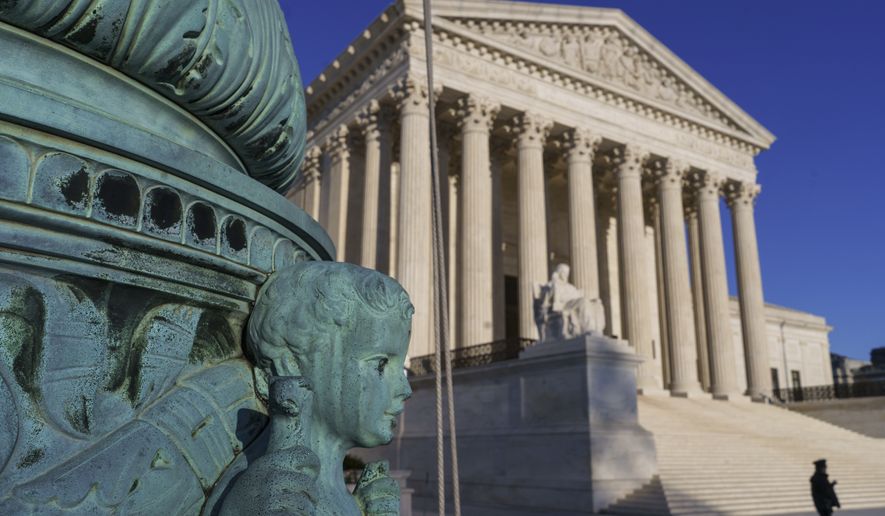The Supreme Court decided in favor of employers Monday, ruling that they can enforce arbitration clauses in contracts and head off employees’ attempts at class-action lawsuits.
The majority in the 5-4 ruling said federal law is on the employers’ side in the dispute, and Justice Neil M. Gorsuch, who wrote the majority opinion, said lawmakers were clear in what they had intended — that cannot-sue provisions are not illegal and unenforceable.
“Our rules aiming for harmony over conflict in statutory interpretation grow from an appreciation that it’s the job of Congress by legislation, not this Court by supposition, both to write the laws and to repeal them,” Justice Gorsuch wrote.
“As a matter of policy these questions [of the justice of cannot-sue contracts] are surely debatable. But as a matter of law the answer is clear,” he wrote.
The case of Ernst & Young LLP v. Morris stemmed from an accountant whose job was terminated, who then sought overtime pay for work he’d done. According to his contract, he was supposed to take those disputes to arbitration, but he instead filed a class-action lawsuit.
The 9th U.S. Circuit Court of Appeals ruled in favor of the accountant, saying the National Labor Relations Act protected employees’ right to engage in “concerted activity,” making the cannot-sue provision in the contract unenforceable.
Monday’s decision, which also covered two related cases which had created a “circuit split” on whether such contracts are enforceable, overturns the 9th Circuit ruling, becoming the latest decision by the liberal-leaning West Coast circuit to be met with disapproval by the high court.
Justice Ruth Bader Ginsburg filed a dissent, in which the other three Democratic-appointed justices joined.
She said, reading her decision from the bench, that the court majority’s ruling would result in “huge underenforcement of federal and state statutes designed to advance the well-being of vulnerable workers.”
She urged Congress to step in and rewrite the law to give employees a recourse in the courts, arguing that employees don’t really have a choice on whether to sign such agreements, calling them “arm-twisted, take-it-or-leave-it contracts.”
Though Monday’s decision does not affect union contracts that protect lawsuit-rights, it affects an estimated 25 million non-unionized employees who work under contracts that limit the ability to sue over workplace disputes. And although this case concerned a pay dispute, it could also affect employees’ ability to sue over such issues as the handling of sexual harassment or pay discrimination claims.
The longest-serving Democrat in the Senate, Sen. Patrick Leahy of Vermont, said he agreed with Justice Ginsburg, adding the court’s decision will hide corporate wrongdoing.
“Preventing employees from banding together may serve large corporations, but it does not serve those who face injustice. It stacks the deck against everyday Americans. In the era of the #MeToo movement, when strength in numbers has proven critical to exposing the wrongdoing of powerful interests, this decision threatens to take us a step backward,” Mr. Leahy said.
• Alex Swoyer can be reached at aswoyer@washingtontimes.com.




Please read our comment policy before commenting.